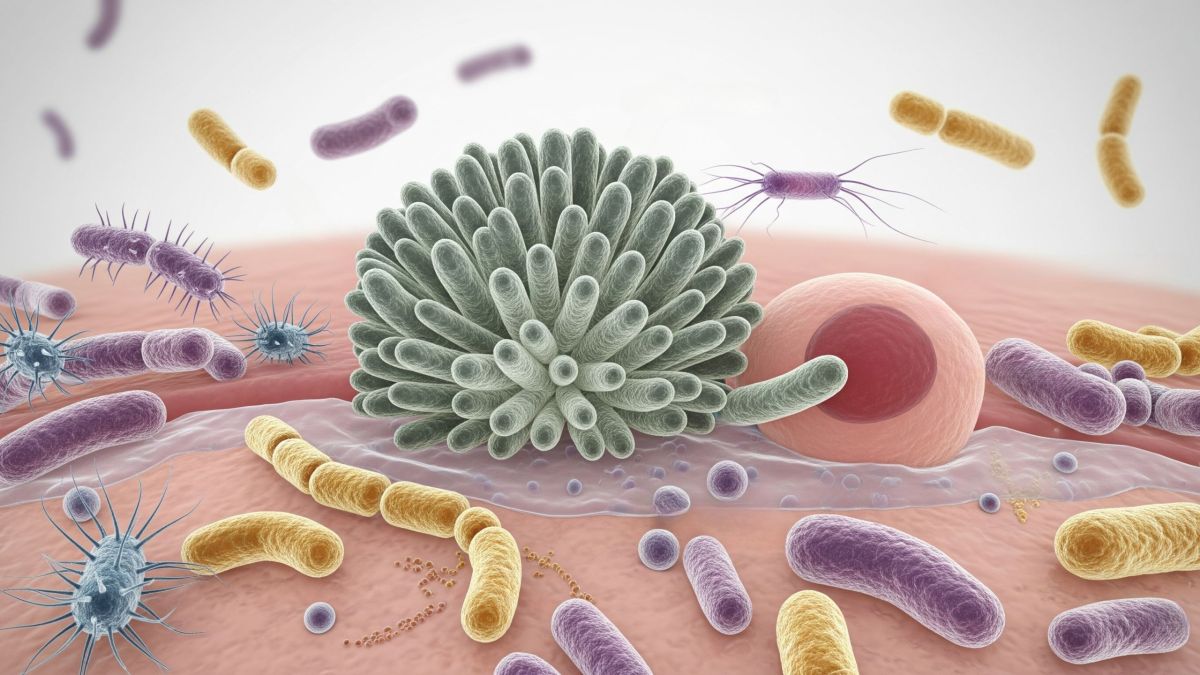Understanding the Vaginal Microbiome: Insights from Science

The human body is host to an incredible array of microorganisms, many of which are essential for maintaining health. Among these, the vaginal microbiome plays a particularly important role in the reproductive and overall well-being of women. Despite its significance, it remains one of the lesser-known aspects of human biology, often overshadowed by more widely discussed health topics.
What Is the Vaginal Microbiome?
The vaginal microbiome refers to the community of bacteria and other microorganisms that live in the vaginal environment. Unlike the gut, where a wide range of bacteria thrive, the vaginal microbiome is typically dominated by Lactobacillus species. These bacteria help maintain a slightly acidic environment, which is crucial for protecting against infections and supporting reproductive health.
A healthy balance of these microorganisms can prevent common issues such as bacterial vaginosis, yeast infections, and urinary tract infections. However, the composition of the microbiome is not static—it can change over time due to factors such as hormonal fluctuations, sexual activity, medication use, hygiene practices, and age.
How It Affects Women's Health
A stable vaginal microbiome contributes to both short-term and long-term health outcomes. For women, it can influence susceptibility to infections, the outcomes of pregnancy, and even the effectiveness of certain medications, including topical treatments and antibiotics. Researchers have found that women whose vaginal microbiome is dominated by Lactobacillus tend to experience fewer complications during pregnancy and lower rates of infections like bacterial vaginosis.
On the other hand, an imbalance—often referred to as dysbiosis—can increase the risk of discomfort, infection, and inflammation. Understanding the microbiome's role in immunity and overall vaginal health has therefore become a critical focus for scientists and clinicians alike.
Factors That Influence the Microbiome
Several internal and external factors influence the vaginal microbiome. Key among these are:
-
Hormones: Estrogen supports the growth of Lactobacillus. Changes during the menstrual cycle, pregnancy, or menopause can shift the microbial balance.
-
Sexual Activity: Sexual intercourse can introduce new bacteria and alter the microbiome temporarily.
-
Antibiotics and Medications: Antibiotics can reduce beneficial bacteria alongside harmful ones, sometimes leading to an overgrowth of yeast or other opportunistic organisms.
-
Hygiene Practices: Overuse of soaps or douches can disrupt the natural balance, making the vagina more susceptible to infections.
Understanding how these factors interact can help women and their healthcare providers maintain optimal vaginal health through informed decisions about lifestyle, hygiene, and medical interventions.
Common Vaginal Bacteria and Roles
| Bacteria | Role |
|---|---|
| Lactobacillus crispatus | Maintains acidity, protects against infections |
| Lactobacillus jensenii | Supports immune defense and microbial balance |
| Gardnerella vaginalis | Can cause bacterial vaginosis if overgrown |
Current Research and Future Directions
Advances in genetic sequencing and microbiology have transformed our understanding of the vaginal microbiome. Scientists are now exploring ways to personalize treatments that restore or maintain a healthy microbiome, such as probiotics tailored for vaginal health or microbiome-friendly pharmaceuticals.
Research also points to potential connections between the vaginal microbiome and conditions beyond reproductive health, including autoimmune diseases and metabolic disorders. While these findings are still emerging, they underscore the microbiome's broader relevance to women's overall health.
Practical Steps for Supporting a Healthy Microbiome
For women seeking to support their vaginal microbiome, experts recommend:
-
Balanced Nutrition: A diet rich in fiber and fermented foods can support beneficial bacteria throughout the body.
-
Mindful Medication Use: Only use antibiotics when necessary and follow guidance on probiotics if advised.
-
Hygiene Awareness: Avoid harsh soaps, douches, or other products that can disturb the natural pH.
-
Regular Checkups: Routine gynecological care can detect and address imbalances before they lead to complications.
While the microbiome is complex, small, informed choices can make a meaningful difference in maintaining vaginal health.
Conclusion
The vaginal microbiome is a central component of women’s health, influencing everything from infection risk to reproductive outcomes. As science continues to uncover its nuances, understanding and respecting this delicate ecosystem becomes increasingly important. Through careful attention to lifestyle, hygiene, and medical guidance, women can support a balanced vaginal microbiome and promote long-term health with confidence and clarity.
Frequently Asked Questions
The vaginal microbiome is the community of microorganisms living in the vagina, primarily Lactobacillus species, which help maintain a healthy environment and prevent infections.
Maintaining a balanced diet, practicing mindful hygiene, using antibiotics only when necessary, and attending regular gynecological checkups can help support a healthy microbiome.
Hormonal changes, sexual activity, certain medications, and overuse of soaps or douches can disrupt the natural microbial balance, potentially leading to infections.
Yes. A microbiome dominated by beneficial bacteria like Lactobacillus is linked to fewer complications and lower infection risk during pregnancy.
Disclaimer: The articles and information provided by the Vagina Institute are for informational and educational purposes only. This content is not intended to be a substitute for professional medical advice, diagnosis, or treatment. Always seek the advice of your physician or another qualified health provider with any questions you may have regarding a medical condition.


 Deutsch
Deutsch  English
English  Español
Español  Français
Français 




